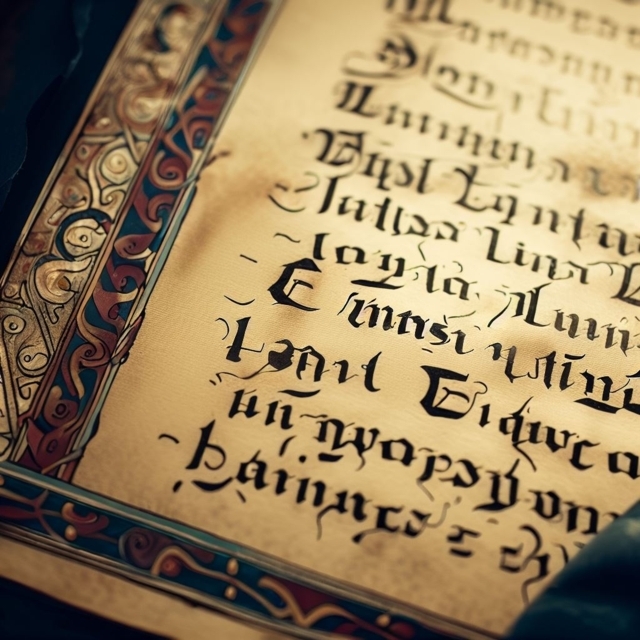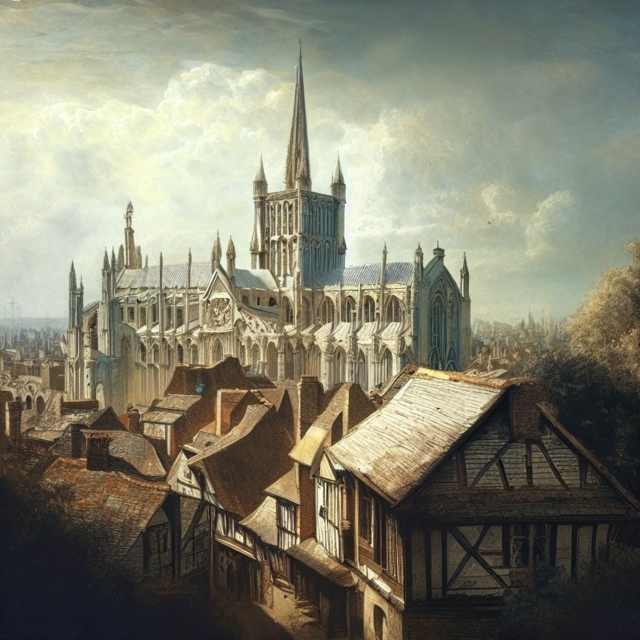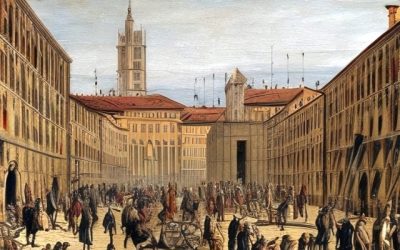In the early 13th century, an Anglo-Norman scholar named Stephen Langton played a pivotal role in making the Bible accessible to English speakers for the first time. Langton’s scholarship laid the groundwork for later seminal translations that brought scripture directly to the people. Let’s explore Langton’s fascinating life and how he helped open the Bible to the masses.
Who was Stephen Langton?
Stephen Langton was born around 1150 in Lincolnshire, England. After studying theology at the University of Paris, he remained there as a renowned professor. Renowned for his brilliance and piety, Langton wrote acclaimed commentaries on the Bible and was elected Archbishop of Canterbury in 1207.
As archbishop, Langton clashed with King John over the rights of the church. He was exiled for several years during a power struggle with the monarch before reconciling and returning to England. Despite his tumultuous political career, Langton’s true passion was scripture. He pioneered new techniques for studying and teaching the Bible that radically shaped English Christianity.
Langton’s Bible Scholarship
Langton brought the methods of the University of Paris’s theology faculty to biblical study in England. He introduced the Parisian practice of dividing scripture into chapters. Langton created the first known chapter divisions of the entire Latin Vulgate Bible around 1205 while teaching in Paris.
This system allowed for easier citation and more systematic study. Langton also added verse markers to aid reference. Though modified over time, Langton’s chapter markings remain in use today. By structuring the Bible into a sequence of chapters and verses, Langton enabled more precise analysis and discussion.
Langton also introduced the “Glossa Ordinaria” approach to England. This involved compiling commentaries and references from church fathers alongside the scripture. Langton gathered existing glosses into a single “ordinary gloss” accompanying the Vulgate text. This fusion of commentary and primary text guided readers’ interpretation.
Paving the Way for English Translations
Langton’s gloss project was never completed, but his structural reforms shifted Bible study toward direct reading of the text. By dividing scripture into manageable units, his chapter system facilitated translating and quoting passages in languages beyond Latin. The English writer John Wycliffe seized upon Langton’s format to produce the first complete Bible translation in English around 1382.
Wycliffe and his associates rendered the Vulgate into English paragraph by paragraph, following Langton’s chapter divisions. Subsequent seminal translations like William Tyndale’s English Bible also adopted Langton’s structure. By pioneering systematic study of scripture, Langton paved the way for the Bible to be opened to ordinary Christians in their native tongue.
Legacy of Expanding Biblical Access
Stephen Langton’s academic approaches to scripture study may seem simple to us today, but they were revolutionary in the 13th century. Langton took the first vital steps toward democratising reading and interpreting the Bible. Thanks to his enduring chapter and gloss innovations, more people could study primary scriptural texts for themselves like never before.
Although not a translator himself, Langton created essential frameworks that others adopted to make the Bible accessible beyond Latin-educated elites. His passion for biblical study and education helped set the stage for revolutions in vernacular preaching and lay literacy. Despite his brief banishment, Langton’s long career leaves an enduring legacy as a pioneer who opened scripture to the masses.
References
– Carpenter, D.A., 2015. Archbishop Langton and Magna Carta: His Contribution, His Doubts and His Hypocrisy. The English Historical Review, 130(544), pp.1041–1065.
– Light, L., 2012. The Bible in the Twelfth Century: An Exhibition of Manuscripts at the Houghton Library. Cambridge, MA: Houghton Library, Harvard University.
Tags
Divi Meetup 2019, San Francisco
Related Articles
Unappreciated Greatness
Life and Legacy of Jahangir of the Mughal Empire. Jahangir ruled over one of the largest empires in human history during his lifetime, yet few people outside of South Asia have heard of him. I aim to shed light on the life and legacy of this remarkable figure,...
The Plague Doctor’s Diary
A Personal Account of the Turin Epidemic of 1656. I am writing this diary to record my experiences and observations as a plague doctor in Turin, the capital of the Duchy of Savoy, during the terrible epidemic that has afflicted this city and its surroundings since the...
The Timeless Beauty of Bustan
Unveiling the Secrets of Saadi Shirazi's Masterpiece.In the realm of Persian literature, few works have captured the essence of love, spirituality, and morality quite like Bustan (The Orchard) by Saadi Shirazi. This 13th-century masterpiece has left a lasting impact...
Stay Up to Date With The Latest News & Updates
Explore
Browse your topics of interest using our keyword list.
Join Our Newsletter
Sign-up to get an overview of our recent articles handpicked by our editors.
Follow Us
Follow our social media accounts to get instant notifications about our newly published articles.









